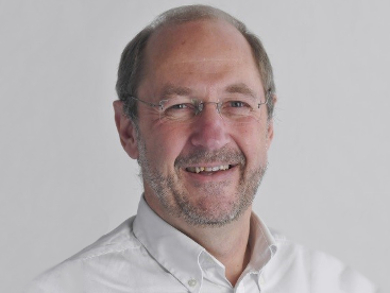Matthias Kraume is Professor of Chemical & Process Engineering at TU Berlin, Germany, engaged in society projects, involved in many research initiatives, and Chairman of the Advisory Board of Chemie Ingenieur Technik, a journal owned by the German Chemical Society (GDCh), and associated with DECHEMA and VDI-GVC (Association of German Engineers and Society for Chemical Engineering).
On the occasion of the 90th anniversary of the journal Chemie Ingenieur Technik, Dr. Barbara Boeck spoke for ChemViews Magazine with Matthias Kraume about trends in chemical engineering, his motivation, and the (German) chemical engineering community.
Do you remember the first article you submitted to CIT?
Of course, I will never forget this publication. As a doctoral student, a publication in CIT felt like an award. The paper appeared in 1985 and dealt with the direct contact heat transfer during the condensation of vapor bubbles [1]. At that time, the long version was still offered in the form of a microfiche, a technique that has since fallen into oblivion.
How long have you known the journal?
I first started following CIT around 1980, at first sporadically as a reader, later continuously and increasingly as an author. Over time, about 50 papers from my workgroup have been published in the journal.
What was your intention when you became a member of the Advisory Board of Chemie Ingenieur Technik?
As the German-language journal in the field of chemical and process engineering, Chemie Ingenieur Technik (CIT) provides an excellent basis for the professional exchange between industry and academia in Germany. Since I am familiar with both sides from my own experience, I wanted to make a contribution towards keeping this platform alive. In fact, I consider the further development of CIT in competition with many other scientific journals an exciting challenge.
Can you please explain this?
On the one hand, relevant, high-quality research results are to be published. However, these results are achieved on increasingly smaller topics and, therefore, are becoming more and more specific. In this area, English-language journals are preferred by the scientific community. On the other hand, there is a great interest in having an overview of the often fragmented research landscape. In this environment, CIT has to repeatedly examine and develop its own position.
Why is it important to have a journal like CIT that appeals to a national community?
Anyone who has been a part of our community for some time will—despite its numerous members—observe how close-knit it is. You keep meeting the same people again and again. Exchanges within this group, both professional and personal, are constantly encouraged by CIT, which also promotes networking. For an overview of research activities in Germany in particular, CIT is practically indispensable for me as a scientist. Accordingly, I see the function of CIT as an exchange platform at the national level as a very significant and valuable unique selling point of the journal.
What fascinates you about chemical process engineering?
It never gets boring, because this discipline never stands still. When I started as a university professor, after nine years in the chemical industry with limited research opportunities, I was initially worried about being able to develop sufficient research topics. So many well-known colleagues had already worked in chemical engineering and built up an impressive framework of knowledge. In fact, however, many different new technical possibilities lead to new processes and to new experimental and numerical analysis methods. Being able to participate in this development continues to fascinate and motivate me. In addition, we are dealing with technical solutions to urgent global problems that must be resolved by humankind in the foreseeable future.
What are the hot topics in chemical engineering today?
It might sound somewhat solemn, but we need to answer the central, technological questions of humankind: climate change, conservation of resources, and preserving an intact environment. From this, we derive topics for our discipline such as power generation and storage, green chemistry, new materials, closed-loop material cycles, or the handling of big data. These overarching goals can, in turn, only be achieved by concrete research projects.
The special issues focussing on one specific topic which CIT regularly publishes repeatedly show excellent examples of such research projects. Exemplarily the special issues on energy carriers, innovative processes for the production of raw materials and new production concepts can be mentioned. In addition, they also illustrate the paramount importance of interdisciplinary approaches in process engineering for the development of sustainable solutions.
What has motivated you in your scientific work?
Constant curiosity and the joy of cracking tough “scientific nuts” motivate me. Today, there is the additional joy of contributing – at least a little – to the development of motivated and creative young students and scientific coworkers and to support them for a while.
The performance of teams is always greater than the sum of the performances of all individuals involved. The creative and organizational processes that are required, e.g., in preparing grant proposals, are extremely instructive and exciting on many levels. Exchange with intelligent people is always a pleasure.
For a long time, you have overseen a broad field of chemical engineering, from mixing and stirring through membranes to multiphase flow. What was your research about at the beginning of your career?
My Ph.D. thesis dealt with direct contact heat transfer in a multiphase system. During most of my industrial work, mixing, chemical reactor design, and multiphase flows played a central role. These roots are still well recognizable today in the orientation of my field of expertise.
What do you like to do in your spare time?
In the field of sports, I have been trying my hand at tennis for decades with limited success. I do a bit of volunteering as a member of a Rotary club. As an avowed football fan, I perform the supposedly impossible balancing act of supporting both Borussia Dortmund and Schalke 04.
So still a close connection with your old homeland.
Thank you very much for the interview.

Matthias Kraume studied chemical engineering at the University of Dortmund, Germany, where he received his Ph.D. in 1985 under the supervision of Paul-Michael Weinspach. He worked as a Research Engineer at BASF AG, Ludwigshafen, Germany, from 1985 to 1994, and then joined the Technical University Berlin, Germany, as Professor of Chemical and Process Engineering.
Kraume’s research interests include transport phenomena in multiphase systems, computational fluid dynamics, reaction engineering, membrane processes, and biological processes.
Reference
- [1] Direkter Wärmeübergang bei der Kondensation eines Blasenschwarms in Wasser (in German),
Matthias Kraume, Artur Steiff, Paul-Michael Weinspach,
Chem. Ing. Tech. 1985, 57, 535–535.
https://doi.org/10.1002/cite.330570614
Selected Publications
- Towards Drop Size Modeling in Three Phase Microemulsion Systems,
Lena Hohl, Joschka M. Schulz, Matthias Kraume,
J. Chem. Eng. Jpn. 2018, 51, 383–388.
https://doi.org/10.1252/jcej.17we291 - Bioengineering Parameters for Single‐Use Bioreactors: Overview and Evaluation of Suitable Methods,
C. Löffelholz, U. Husemann, G. Greller, W. Meusel, J. Kauling, P. Ay, M. Kraume, R. Eibl, D. Eibl,
Chem. Ing. Tech. 2013, 85, 40–56.
https://doi.org/10.1002/cite.201200125 - DEM-CFD simulations of fixed bed reactors with small tube to particle diameter ratios,
T. Eppinger, K. Seidler, M. Kraume,
Chem. Eng. J. 2011, 166 (1), 324–331.
https://doi.org/10.1016/j.cej.2010.10.053 - Recent advances in membrane bioreactors (MBRs): Membrane fouling and membrane material,
Fangang Meng, So-Ryong Chae, Anja Drews, Matthias Kraume, Hang-Sik Shin, Fenglin Yang,
Water Res. 2009, 43, 1489–1512.
https://doi.org/10.1016/j.watres.2008.12.044 - Impact of ambient conditions on SMP elimination and rejection in MBRs,
Anja Drews, Jan Mante, Vera Iversen, Martin Vocks, Boris Lesjean, Matthias Kraume,
Water Res. 2007, 41, 3850–3858.
https://doi.org/10.1016/j.watres.2007.05.046 - The effect of pH on experimental and simulation results of transient drop size distributions in stirred liquid–liquid dispersions,
A. Gäbler, M. Wegener, A. R. Paschedag, M. Kraume,
Chem. Eng. Sci. 2006, 61, 3018–3024.
https://doi.org/10.1016/j.ces.2005.10.072 - Performance of a bioreactor with submerged membranes for aerobic treatment of municipal waste water,
S. Rosenberger, U. Krüger, R. Witzig, W. Manz, U. Szewzyk, M. Kraume,
Water Res. 2001, 36, 413–420.
https://doi.org/10.1016/S0043-1354(01)00223-8 - Filterability of activated sludge in membrane bioreactors,
S. Rosenberger, M. Kraume,
Desalination 2002, 146, 373–379.
https://doi.org/10.1016/S0011-9164(02)00515-5



